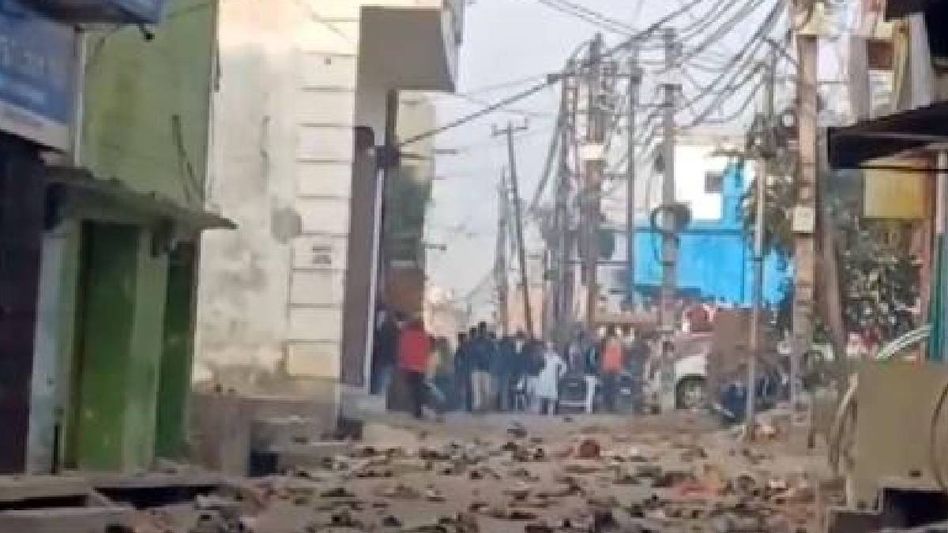2 killed in violent clash over mosque survey in Uttar Pradesh’s Sambhal
Sambhal, Uttar Pradesh, was rocked by violence on Sunday, November 24 when a mob opposing a court-ordered survey of the Shahi Jama Masjid clashed with police, resulting in two deaths. The survey was initiated following a complaint alleging that the mosque was built on the site of a temple demolished during the Mughal era.

Sambhal, Uttar Pradesh, was rocked by violence on Sunday, November 24 when a mob opposing a court-ordered survey of the Shahi Jama Masjid clashed with police, resulting in two deaths. The survey was initiated following a complaint alleging that the mosque was built on the site of a temple demolished during the Mughal era.
The protesters, numbering in the hundreds, gathered near the mosque as the survey team arrived, accompanied by heavy police security. Despite appeals for calm, tensions escalated, and the mob began pelting stones at the police and survey team. In response, the police used tear gas to disperse the crowd.
The police confirmed the deaths but have not disclosed the identities of the victims. While there are allegations that the deaths resulted from bullet injuries, police officials stated that the exact cause will only be known after an autopsy.
According to reports, the head of the Jama Masjid urged protesters to disperse, but the crowd remained defiant. Efforts by senior police officials to restore order were unsuccessful, leading to the violent confrontation.
Uttar Pradesh Additional Director General of Police Prashant Kumar described the incident, stating, "The survey was being conducted on court orders. Some anti-social elements resorted to stone-pelting. Police and senior officers acted promptly to control the situation. Legal action will be taken against the culprits.”
Sub-Inspector Vikas Nirwal, who sustained injuries during the clash, revealed that at least 300 people were involved in the violence, targeting police personnel and their vehicles.
Following the incident, 18 individuals were detained, and a drone survey was conducted to identify others involved. Meanwhile, the Advocate Commission successfully completed the mosque survey, documenting the process through videography and photography. The commission is set to present its findings to the court on November 29, according to Sambhal District Magistrate Rajender Pensiyia.
The survey stems from a complaint filed by Supreme Court lawyer Vishnu Shankar Jain, alleging that the mosque was constructed over the remnants of the Hari Har Mandir, a temple said to have been partially demolished by Mughal emperor Babar in 1529. Vishnu Jain, along with his father Hari Shankar Jain, has been a key legal representative for Hindu claims in disputes over religious sites, including the Gyanvapi mosque case.
In response to escalating tensions, authorities imposed prohibitory orders in the area, banning gatherings of more than five people. Additionally, 35 individuals were placed under a peace bond of up to Rs10 lakh to maintain public order.
Copyright©2024 Living Media India Limited. For reprint rights: Syndications Today









